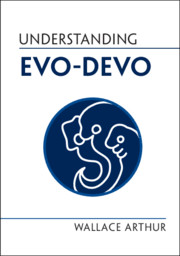Book contents
- Understanding Evo-Devo
- Series page
- Understanding Evo-Devo
- Copyright page
- Reviews
- Dedication
- Contents
- Foreword
- Preface
- Acknowledgements
- 1 What is Evo-Devo and Why is it Important?
- 2 Antecedents of Evo-Devo
- 3 Evolutionary and Developmental Essentials
- 4 Evo-Devo Essentials
- 5 The Evolution of Variations on a Theme
- 6 The Evolutionary Origins of Themes and Novelties
- 7 The Evolutionary Origins of Body Plans
- 8 Body-Plan Features and Toolkit Genes
- 9 Bringing It All Together
- Concluding Remarks
- Summary of Common Misunderstandings
- References
- Figure Credits
- Index
5 - The Evolution of Variations on a Theme
Published online by Cambridge University Press: 29 April 2021
- Understanding Evo-Devo
- Series page
- Understanding Evo-Devo
- Copyright page
- Reviews
- Dedication
- Contents
- Foreword
- Preface
- Acknowledgements
- 1 What is Evo-Devo and Why is it Important?
- 2 Antecedents of Evo-Devo
- 3 Evolutionary and Developmental Essentials
- 4 Evo-Devo Essentials
- 5 The Evolution of Variations on a Theme
- 6 The Evolutionary Origins of Themes and Novelties
- 7 The Evolutionary Origins of Body Plans
- 8 Body-Plan Features and Toolkit Genes
- 9 Bringing It All Together
- Concluding Remarks
- Summary of Common Misunderstandings
- References
- Figure Credits
- Index
Summary
Rapid evolution can be observed happening in nature when selection is unusually strong. We are all familiar, these days, with the evolution of antibiotic resistance in bacteria and the evolution of pesticide resistance in insects. Less familiar, but also very rapid, is the evolution of resistance to heavy metals in populations of plants that have adapted to growing on the spoil-heaps surrounding zinc and lead mines. These cases of unusually strong selection and consequently rapid evolution are all associated with human modification of the environment. The classic case study of evolution happening – industrial melanism in moths – also fits into this category.
Keywords
- Type
- Chapter
- Information
- Understanding Evo-Devo , pp. 74 - 95Publisher: Cambridge University PressPrint publication year: 2021

